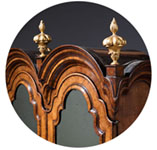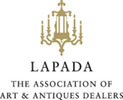18th-Century George III Mahogany Eight-Day 8″ Silver Dial Clock by T.M London
Sold
Request Information
Follow Us
18th-Century George III Mahogany Eight-Day 8″ Silver Dial Clock by T.M London
A Rare 18th-Century Georgian English 8″ Dial Clock / Wall Clock, by THEODORE MORISON London, C. 1770.
The small attractive mahogany and oak case has a glazed door on the front with a moulded mahogany bezel with lock. The original oak salt box at the back is attached to the front by four pegs and has doors to the side and bottom to access the movement.
The beautifully engraved silvered brass dial has a Roman chapter ring with Arabic five-minute and minute divisions. A particularly rare feature of this clock is a false pendulum aperture above the middle, which shows the clock is running. It is signed by the maker in the following manner: Theodore Morison London. The time is indicated by a fine pair of period blued-steel hands.
The spring-driven, eight-day movement is constructed between rectangular plates connected by five knopped pillars. It has a going train with gut fusee, verge escapement and a short pendulum.
Condition
Good. Wear consistent with age and use. The clock is in wonderful original condition, the movement has been restored.
Dimensions
Height: 15.36 in. (39 cm)
Diameter: 11.03 in. (28 cm)
Literature
Brian Loomes, Watchmakers and Clockmakers of the World, London, 2006, p. 552
PREVIOUSLY SOLD
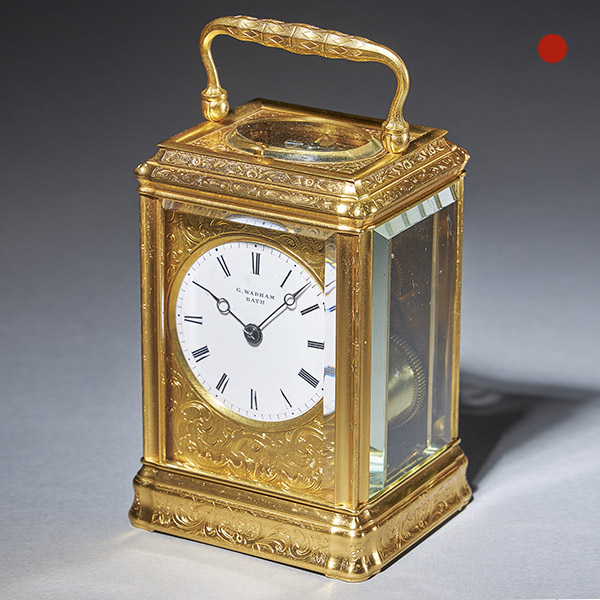
19th Century Gilt-Brass Engraved Striking and Repeating Carriage Clock
19th Century Gilt-Brass Engraved Striking and Repeating Carriage Clock Sold Follow Us19th Century Gilt-Brass Engraved Striking and Repeating Carriage Clock The superb engraved gilt brass gorge case has facetted glass panels to all sides so...
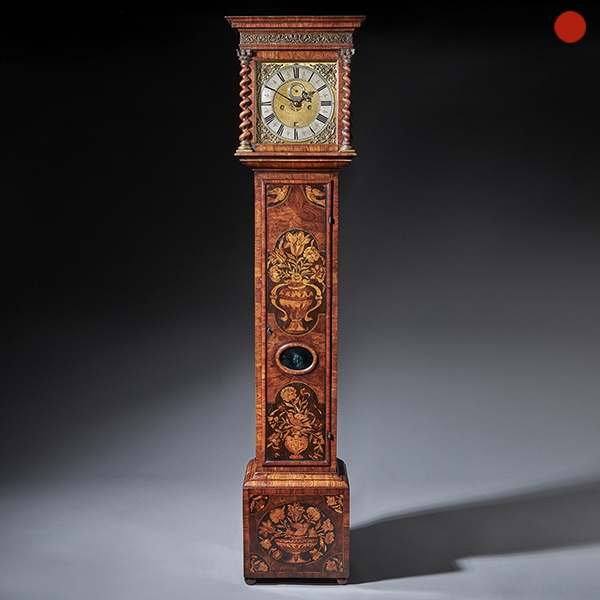
Important Charles II 17th Century Princes Wood and Marquetry Longcase Clock
Important Charles II 17th Century Princes Wood and Marquetry Longcase Clock SOLD Follow UsImportant Charles II 17th Century Princes Wood and Marquetry Longcase Clock A unique and important Charles II 17th century month-going Princes wood and...
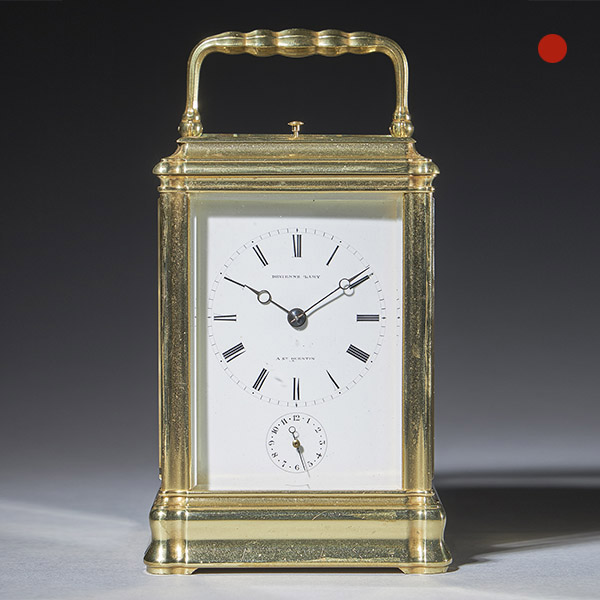
A Rare And Unusual 19th-Century Carriage Clock Signed Devienne Lamy A St Quentin, Circa: 1860
A Rare And Unusual 19th-Century Carriage Clock Signed Devienne Lamy A St Quentin, circa 1860. The gorge case has bevelled glass panels on all sides.
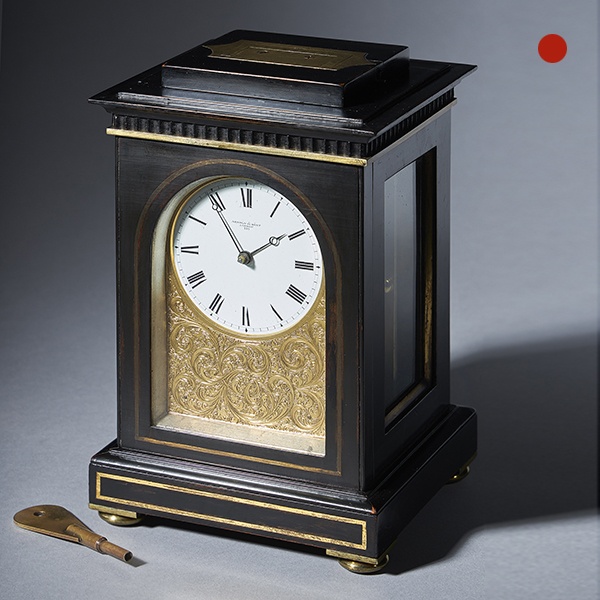
A Unique And Fine Mid 19th-Century Travelling Clock By Celebrated Makers Arnold & Dent, London
Unique and Fine Mid 19th-Century Travelling Clock By Celebrated Makers Arnold & Dent, London. The time is indicated by a fine pair of blued-steel Breguet hands.
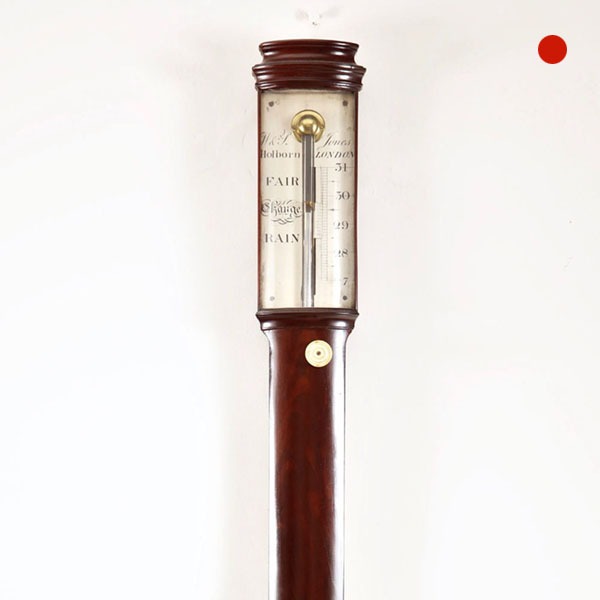
A fine 18th-Century George III mahogany bow-front stick barometer
The mahogany-veneered case has an austere form with only the moulded caddy top and the urn-shaped cistern cover to break its soberness. The silvered register plates are protected by a bowed glass, the recorder with vernier scale being operated by a knob below the register plate.
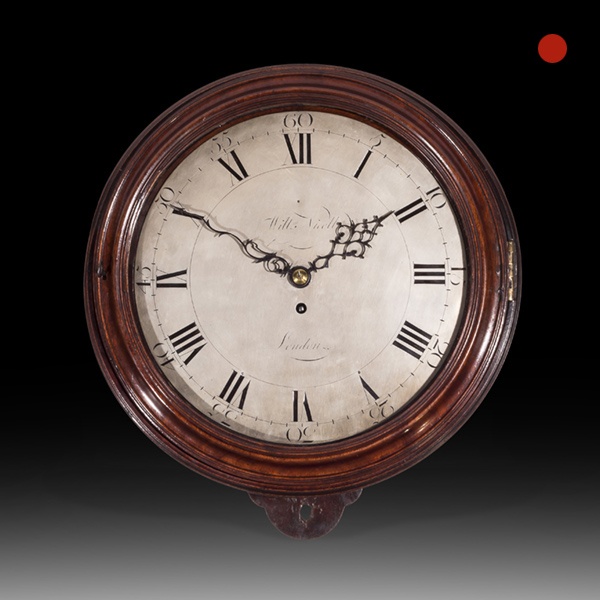
Large Mahogany 18th-Century Dial Clock, William Nicoll, London
The solid mahogany case has a moulded mahogany glazed door, which can be locked on the left-hand side. The original rectangular saltbox is permanently attached to the front and has doors to the side and the bottom.

19th Century Gilt-Brass Engraved Striking and Repeating Carriage Clock
19th Century Gilt-Brass Engraved Striking and Repeating Carriage Clock Sold Follow Us19th Century Gilt-Brass Engraved Striking and Repeating Carriage Clock The superb engraved gilt brass gorge case has facetted glass panels to all sides so...

Important Charles II 17th Century Princes Wood and Marquetry Longcase Clock
Important Charles II 17th Century Princes Wood and Marquetry Longcase Clock SOLD Follow UsImportant Charles II 17th Century Princes Wood and Marquetry Longcase Clock A unique and important Charles II 17th century month-going Princes wood and...

A Rare And Unusual 19th-Century Carriage Clock Signed Devienne Lamy A St Quentin, Circa: 1860
A Rare And Unusual 19th-Century Carriage Clock Signed Devienne Lamy A St Quentin, circa 1860. The gorge case has bevelled glass panels on all sides.

A Unique And Fine Mid 19th-Century Travelling Clock By Celebrated Makers Arnold & Dent, London
Unique and Fine Mid 19th-Century Travelling Clock By Celebrated Makers Arnold & Dent, London. The time is indicated by a fine pair of blued-steel Breguet hands.

A fine 18th-Century George III mahogany bow-front stick barometer
The mahogany-veneered case has an austere form with only the moulded caddy top and the urn-shaped cistern cover to break its soberness. The silvered register plates are protected by a bowed glass, the recorder with vernier scale being operated by a knob below the register plate.

Large Mahogany 18th-Century Dial Clock, William Nicoll, London
The solid mahogany case has a moulded mahogany glazed door, which can be locked on the left-hand side. The original rectangular saltbox is permanently attached to the front and has doors to the side and the bottom.
YOU MAY ALSO LIKE
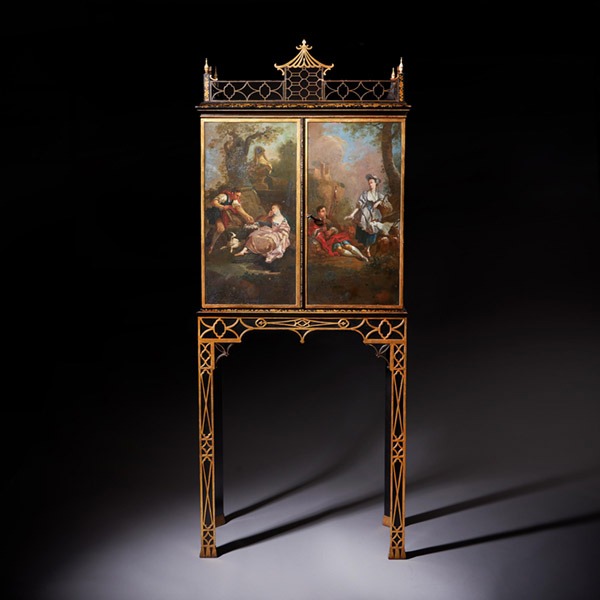
A Rare Chinese Chippendale George III cabinet on stand, circa 1760 England
A Rare Chinese Chippendale George III cabinet on stand, circa 1760. England £38,000Follow UsA Rare...
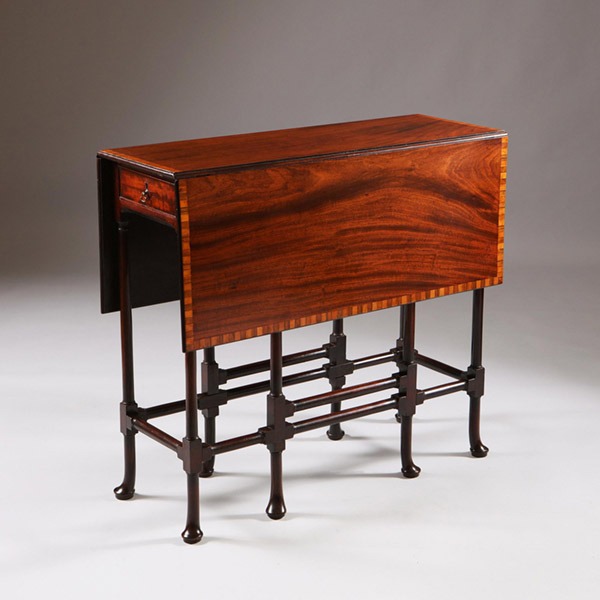
George III mahogany spider-leg table attributed to Thomas Chippendale 1768
A George III mahogany spider-leg table attributed to Thomas Chippendale 1768 £12,000Follow UsA...
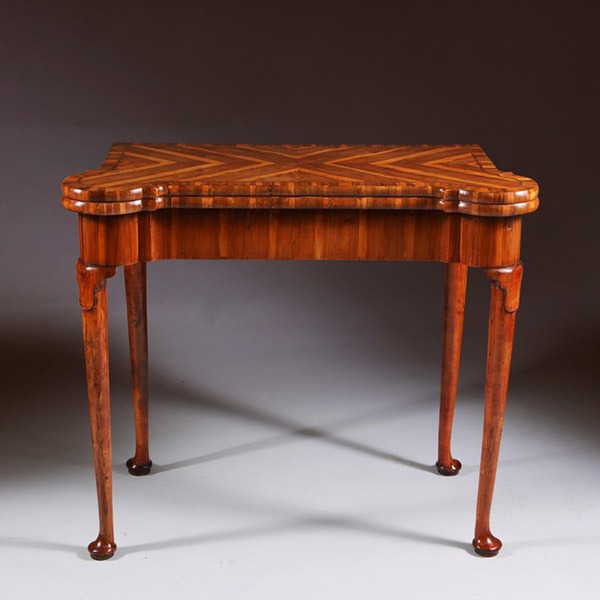
Museum Grade George I Cocus Wood Card Table, Circa 1725, England
Museum Grade George I Cocus Wood Card Table, Circa 1725. England £32,000Follow UsMuseum Grade...
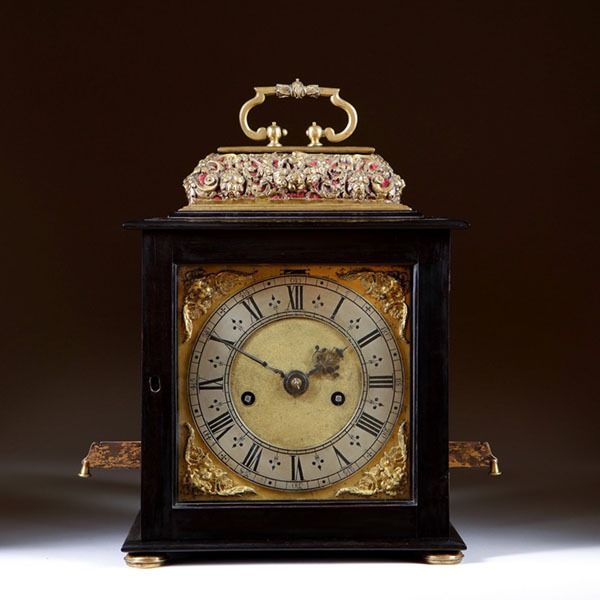
A Rare and Important Charles II 17th Century Table Clock by Henry Jones
A Rare and Important Charles II 17th Century Table Clock by Henry Jones £85,000Follow UsA Rare and...
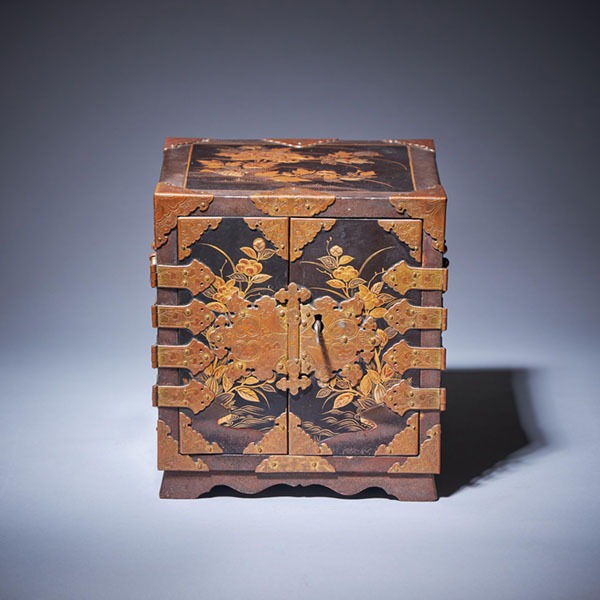
Important Early Edo Period 17th Century Miniature Japanese Lacquer Cabinet
Important Early Edo Period 17th Century Miniature Japanese Lacquer Cabinet £36,000Follow...
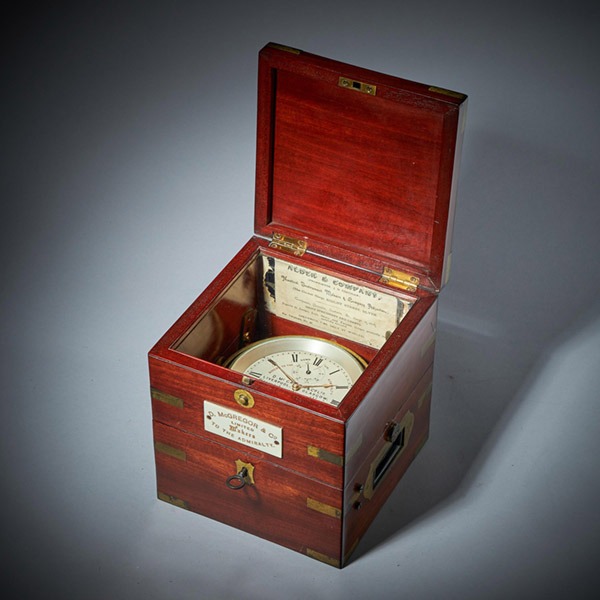
Fine Scottish Two-Day Marine Chronometer Signed and Numbered D. McGregor
Fine Scottish Two-Day Marine Chronometer Signed and Numbered D. McGregor £6,500Follow UsFine...

A Rare Chinese Chippendale George III cabinet on stand, circa 1760 England
A Rare Chinese Chippendale George III cabinet on stand, circa 1760. England £38,000Follow UsA Rare...

George III mahogany spider-leg table attributed to Thomas Chippendale 1768
A George III mahogany spider-leg table attributed to Thomas Chippendale 1768 £12,000Follow UsA...

Museum Grade George I Cocus Wood Card Table, Circa 1725, England
Museum Grade George I Cocus Wood Card Table, Circa 1725. England £32,000Follow UsMuseum Grade...

A Rare and Important Charles II 17th Century Table Clock by Henry Jones
A Rare and Important Charles II 17th Century Table Clock by Henry Jones £85,000Follow UsA Rare and...

Important Early Edo Period 17th Century Miniature Japanese Lacquer Cabinet
Important Early Edo Period 17th Century Miniature Japanese Lacquer Cabinet £36,000Follow...

Fine Scottish Two-Day Marine Chronometer Signed and Numbered D. McGregor
Fine Scottish Two-Day Marine Chronometer Signed and Numbered D. McGregor £6,500Follow UsFine...
